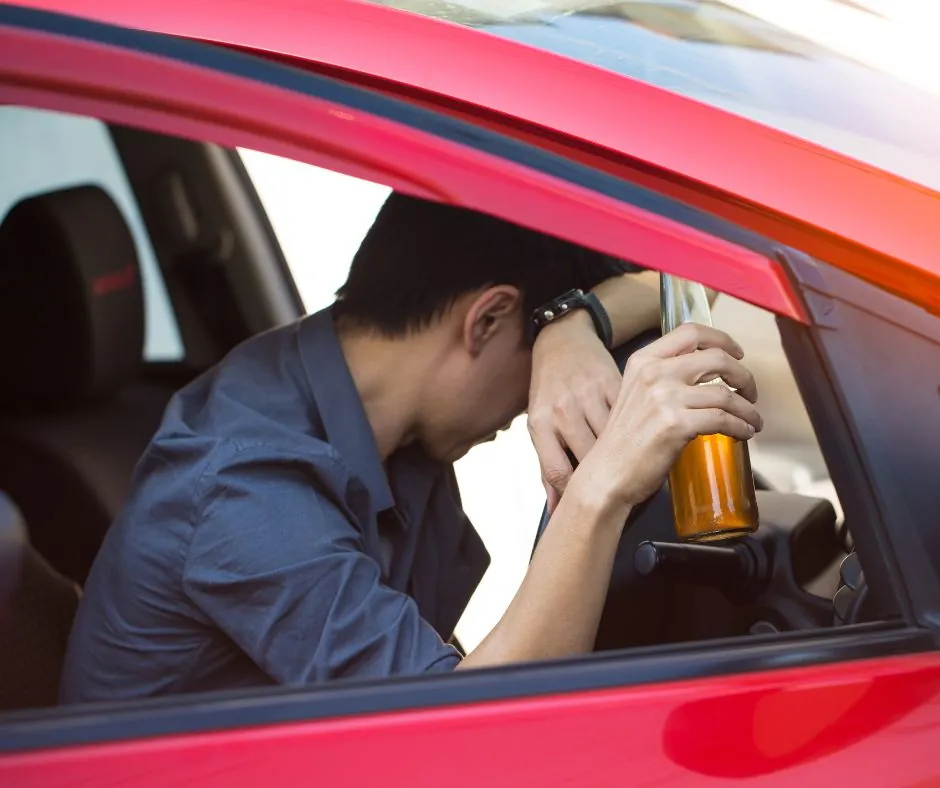
After a fun night out with too many drinks, you decide to play it safe by sleeping it off in your car. It seems like the responsible choice, right? But a nagging question might pop into your head: Can you get a DUI for sleeping in your car drunk?
Nebraska, like most states, takes a firm stance against drunk driving. However, the regulations surrounding sleeping in your car with alcohol in your system can be confusing.
Petersen Criminal Defense Law understands the confusion surrounding this issue and breaks down Nebraska DUI laws.
Understanding DUI Laws in Nebraska
In Nebraska, DUI laws are strict and encompass more than just operating a vehicle while intoxicated. According to Nebraska Revised Statutes § 60-6,196, driving under the influence (DUI) is defined as operating or being in actual physical control of a motor vehicle while under the influence of alcohol or drugs to a degree that renders you incapable of safely operating the vehicle. This usually involves having a blood alcohol concentration (BAC) of .08% or higher.
Nebraska courts have broadly interpreted the term “operating,” expanding its scope beyond mere active driving. This definition goes beyond simply driving. The key concept here is “actual physical control.”
What Constitutes “Actual Physical Control” in Nebraska?
Nebraska courts have interpreted “actual physical control” broadly. This means you don’t necessarily need to be behind the wheel with the engine running to be charged with a DUI. If a police officer finds you intoxicated in your car and believes you are capable of driving, you could be charged with a DUI. Here are some factors officers might consider when determining “actual physical control”:
- Location of the car—Parked on the side of the road, in a driveway, or in a parking lot?
- Keys readily accessible—Are your keys in the ignition, in your pocket, or nearby?
- Engine recently running—Signs the engine was recently turned off could indicate an intent to drive soon.
- Level of intoxication—The higher your BAC, the stronger the argument for “actual physical control.”
The rationale is that if you have the potential to start and drive the car, you pose a risk to public safety. Even if you intend to sleep it off, these factors can lead to a DUI charge in Nebraska.
DUI Legal Precedents in Nebraska
Nebraska courts have upheld DUI convictions in cases where individuals were found sleeping in their cars while intoxicated. In most cases, the drivers were asleep with the keys in the ignition despite not driving. This demonstrates that merely being in a position to drive can result in a DUI charge.
Beyond the DUI: Additional Legal Considerations
While a DUI is the primary concern, sleeping in your car while intoxicated can lead to other legal troubles:
Open Container Violation
Nebraska law prohibits possessing open containers of alcohol in a motor vehicle. Even if the car is not running, having an open container within reach could result in a citation.
Is It Illegal to Sleep in Your Car?
Sleeping in your car is not inherently illegal in Nebraska. However, the circumstances under which you do so matter significantly. Being intoxicated in a situation where you are capable of driving the car increases the risk of facing DUI charges. To avoid this, consider the following tips:
- Move to the Passenger Seat or Backseat. This reduces the perception that you are in control of the vehicle.
- Keep the Keys Out of Reach. Place the keys in the trunk or give them to a sober companion.
- Do Not Start the Engine. Even if you are cold, running the engine can indicate that you intend to drive.
Consequences of a DUI for Sleeping in Your Car
DUI convictions in Nebraska come with severe penalties, including:
- Fines. Substantial fines that increase with subsequent offenses.
- License Suspension. Loss of driving privileges for a period, depending on the number of offenses.
- Imprisonment. Jail time, especially for repeat offenders or cases involving high blood alcohol concentration (BAC).
- Alcohol Education Programs. Mandatory participation in programs aimed at preventing future offenses.
A DUI conviction can also have long-lasting consequences on your reputation and future opportunities.
Steps to Take If Charged with a DUI
Facing a DUI charge for sleeping in your car requires immediate action:
- Consult a DUI Attorney. An experienced attorney can help navigate the legal complexities and build a strong defense.
- Gather Evidence. Document your intent and actions, such as moving to the passenger seat or placing the keys away from the ignition.
- Understand Your Rights. Be aware of your rights during interactions with law enforcement to avoid self-incrimination.
Even if you weren’t driving, being in control of the vehicle can lead to a DUI charge. It is essential to seek legal guidance to protect your rights and potentially avoid serious consequences.
FAQs
Can I Get a DUI If I am Sitting in the Passenger Seat?
While less likely, it is still possible if other factors suggest you were recently in control of the vehicle. Always take precautions to ensure you are not perceived as intending to drive.
What If I’m Sleeping In My Car On Private Property?
DUI laws apply regardless of whether you are on public or private property. The key factor is whether you are in actual physical control of the vehicle.
Are There Any Defenses Against A DUI Charge For Sleeping In My Car?
Potential defenses include proving that you were not in actual physical control or demonstrating that you took steps to prevent yourself from driving.
Don’t Let a Night Out Turn into a Legal Nightmare. Petersen Criminal Defense Law Can Help
A DUI charge, even if stemming from an incident of sleeping in your car, can have serious consequences. Petersen Law understands the complexities of Nebraska’s DUI laws and is dedicated to protecting your rights. Our experienced attorneys will carefully review the specifics of your case and diligently strive to attain the most favorable outcome, from dismissal to a plea to a lesser charge.
If you’re facing a DUI charge, don’t hesitate to contact us today. We are here to help you understand your rights and provide knowledgeable guidance throughout your legal journey.


